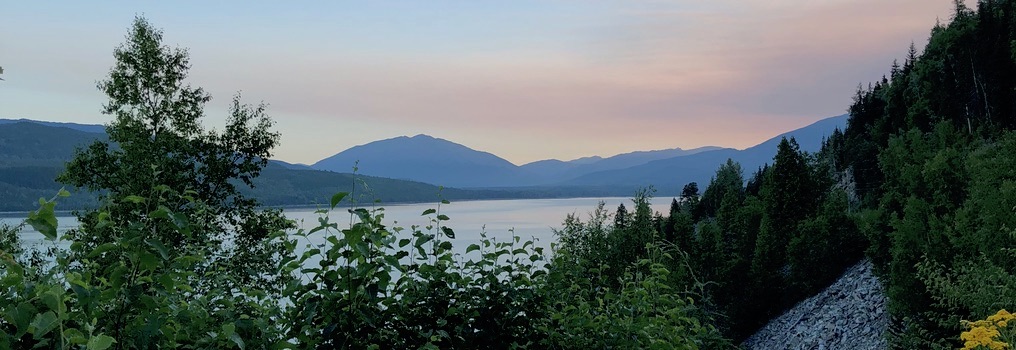Project
Policies for Alternative Reforestation Under Climate Change in British Columbia
Themes
Adaptive forest management, climate change, governance, biodiversity, reforestation
Interests
- The effectiveness of current reforestation strategies to promote resilience.
- The impacts of current policies and regulations on reforestation decisions.
- The factors that promote and constrain alternative reforestation strategies under climate change.
I’m also very much interested in international forestry topics realted to people and development. This includes stategies such as reducing emissions from deforestation and forest degradation in developing countries (REDD+), payment for environmental services, microenterprise development, rights of local communities and indigenous groups, and illegal logging.
Research Experience
May – September 2010 Graduate Research Assistant, Malcolm Knapp Research Forest, University of British Columbia. Maple Ridge, BC, Canada.
October 2009 – Present Graduate Research Assistant, Assessing Alternative Forest Management Strategies Under Climate Change, The Kamloops Future Forest Strategy II (K2). Harry Nelson, Stewart Cohen. Vancouver, BC, Canada.
2004 Field Research Assistant, University of Tennessee. Knoxville, TN, USA.
2003 Intern. US Forest Service Institute of Pacific Island Forestry, Pacific Southwest Research Station & University of Hawai’i, Hilo, USA
Professional Experience
January 2010 – Present Graduate Teaching Assistant, Sustainable Forest Policy. University of British Columbia. Vancouver, BC, Canada
January – May 2010 Graduate Teaching Assistant, International Forestry. University of British Columbia. Vancouver, BC, Canada.
2008 – 2009 Program Specialist (METI, Inc. contractor), Latin America & Caribbean Programs. US Forest Service International Programs. Washington, DC, USA.
2007 Volunteer Coordinator, US Peace Corps. Santa Cruz, Bolivia.
2005 – 2007 Agriculture Extension Volunteer, US Peace Corps. Tarija, Bolivia.
Professional Affiliations
UBC Forestry Graduate Student Association (Co-chair since 2010)
Society of American Foresters (member since 2009)
Commonwealth Forestry Association (member since 2009)
International Union of Forest Research Organizations (member since 2009)
International Forestry Student Association (member since 2009)
Conference Presentations
Perez, D. “Policies for Adaptation in Forestry: Implementing Adaptive Actions of the Kamloops Future Forest Strategy.” Poster presented at the workshop on Proactive Adaptation: Challenges and Opportunities for Climate Change Response within Sustainable Forest Management. Vancouver, British Columbia, February 14-16, 2011. – Winner of student poster competition.
Perez, D., Bancroft, B., Brown, C., Cohen, S., Gerzon, M., Kremsater, L., Nelson, H., Nitschke, C., Pearce, C., Seely, B., Welham, C., Zielke, K. “The Kamloops Future Forest Strategy – Validating Impacts, Exploring Vulnerabilities & Developing Robust Adaptive Strategies: A Collaborative Exploration of Climate Change.” Poster presented at the workshop on Proactive Adaptation: Challenges and Opportunities for Climate Change Response within Sustainable Forest Management. Vancouver, British Columbia, February 14-16, 2011.
Awards, Grants and Scholarships
Mary and David Macaree Fellowship Award (2011)
UBC International Partial Tuition Scholarship (2009 & 2010)
Brenda Hanson Memorial Scholarship in Forestry (2010)
Vandusen Graduate Fellowship in Forestry Award (2010)
Academic Qualifications
2010 ArcGIS Desktop (ArcGIS 9.2-9.3) Esri Web Course 8 modules (24 hrs)
2008 Program Management – US Department of Agriculture Graduate School. Washington, DC, USA
2005 US Peace Corps Spanish Certification (native Spanish fluency). Cochabamba, Bolivia
2004 B.Sc. Environmental Biology & Ecology, Appalachian State University. Boone, NC, USA. Tri-beta society for biology honors.
Publications
Zimmerman, N., R. F. Hughes, S. Cordell, P. Hart, H.K. Chang, D. Pérez, R. K. Like, AND R. Ostertag. 2007. Patterns of Primary Succession of Native and Introduced Plants in Lowland Wet Forests in Eastern Hawai’i. Biotropica 40(3): 277-284.
